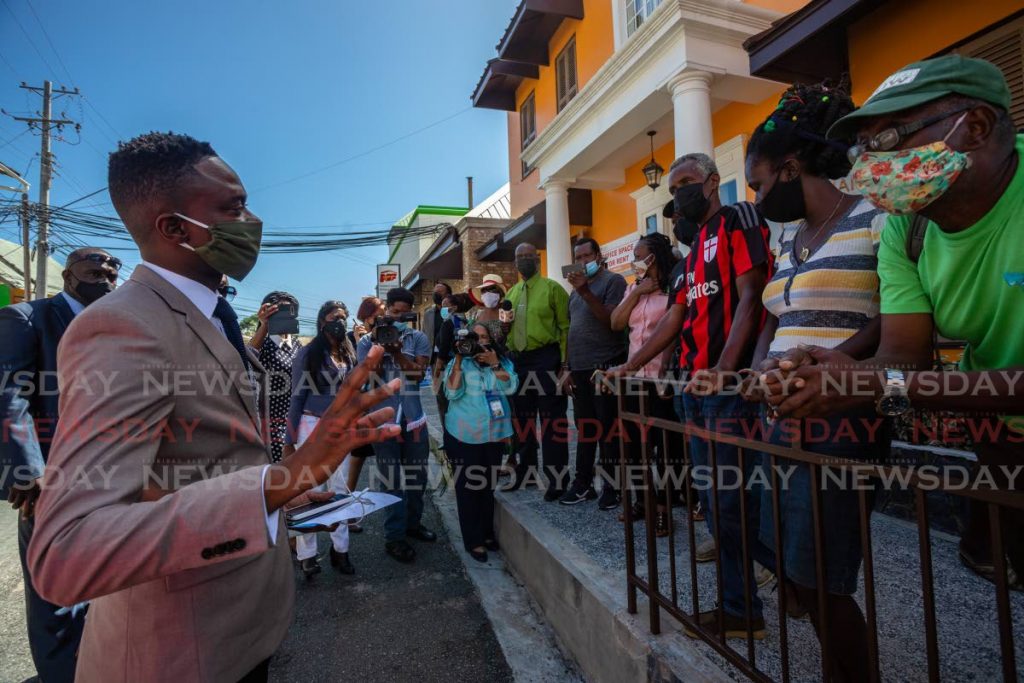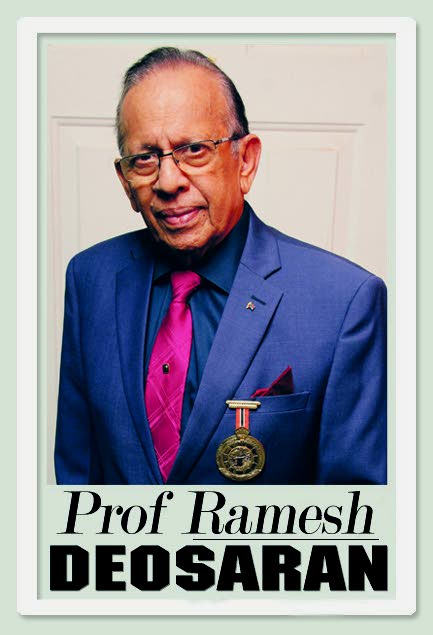No confidence and crisis

The exciting local government election outcome in Trinidad (UNC three, PNM two) and the “constitutional crisis” caused by the six-six tie between the PNM and the Progressive Democratic Patriots (PDP) in THA elections fell a bit backstage last Wednesday as the UNC political leader, Kamla Persad-Bissessar, moved a no confidence motion against the Minister of National Security, Stuart Young.
The 2001 general election revealed an 18-18 tie between the PNM and UNC, after which provisions were made for an uneven-numbered 41-seat House of Representatives. The 1996 THA Act provides for 12 assembly seats, thus allowing the six-six tie. Assuming no conciliatory arrangement between the PNM and PDP, the Parliament (PNM and UNC) with the Elections and Boundaries Commission may quickly consider making an amendment to have an uneven number of assembly seats, then call fresh elections.
During the no-confidence debate, PM Dr Keith Rowley dramatically held up a letter he said came from the Chinese Embassy. This letter was important, since he sought to reject the Opposition Leader’s claim that National Security Minister Stuart Young had given “exemptions to 17 persons to travel from Trinidad and Tobago to Guyana” on January 25 while denying other people similar exemption.
Discrimination against our citizens and bad policy management, complained Ms Persad-Bissessar. That appeared to be her “deadliest” shot against Mr Young and the government. Dr Rowley then stated that the Chinese Embassy’s letter explained that the “listed 17 persons were diplomats.” Government speakers further explained that, as such, these “diplomats” were allowed under the Vienna Convention to cross our borders and be “self-quarantined.”
However, up to Ms Persad-Bissessar’s rescue came super-loyalist Princes Town MP Barry Padarath. He held up his own list of “17 persons,” claiming to have “all their passport numbers.” Mr Padarath explained that “not all were diplomats,” thus bringing some credibility to Ms Persad-Bissessar’s accusation.
But then who were these “others?” Neither Dr Rowley nor any government speaker replied to this.
It seems we may never know, unless, of course, both Dr Rowley and Mr Padarath publish their respective lists.
This no-confidence debate see-sawed between high and low points, making it also clear that quite a few MPs need some improved debating skills. Having prepared speeches could leave an MP stranded and irrelevant. The Opposition Leader, less emotional and more logical, focussed mostly on the exemption issue, apparently leaving the rest to other UNC MPs.
And true to form, Naparima MP Rodney Charles energetically poured in whatever gestures and emotions were missing. Mr Charles, a former diplomat, with impressive decibels, declared that Mr Young was "much worse” than former national security minister Edmund Dillon and “should resign.” He should have explained that the Vienna Convention is not absolute.
Replying to the no-confidence motion against him, Mr Young came across like a hurt, angry bull. With reddened face and stacked notes, he hurled one accusation after another at Ms Persad-Bissessar and her 2010-2015 government.
From having “five national security ministers” to the controversial leasing of two helicopters, Mr Young went highly self-righteous with: “I am in nobody’s pocket, I don’t owe anyone anything; no financier in the world, contractor or criminal can say Stuart Young owes anybody anything. I do what I believe is right – without fear, favour, malice or will-ill.” He was, of course, repeating his oath of office.
The final vote was 20 against, 18 for.
It was the experienced Dr Moonilal who, in a stirring presentation, hit the AG’s repeated claim of “crime reduction in 2020” for six. He explained that the crime reduction claimed was a result of restricted activities owing to covid19. Criminals, too, are afraid of covid19, he said.
Regarding the leasing of the two helicopters, whenever the appropriate trial ends, our public should reliably know, among other things: Which minister of national security or government official of the UNC initially signed off on the lease and under what conditions? As reported, why was one helicopter paid for and not really delivered? Why was one helicopter parked up at Cumuto with payments and repairs still outstanding? Who are accountable? How can the AG publicly say now a former government advisor has “nothing” to do with it while the matter is under litigation against this country?



Comments
"No confidence and crisis"